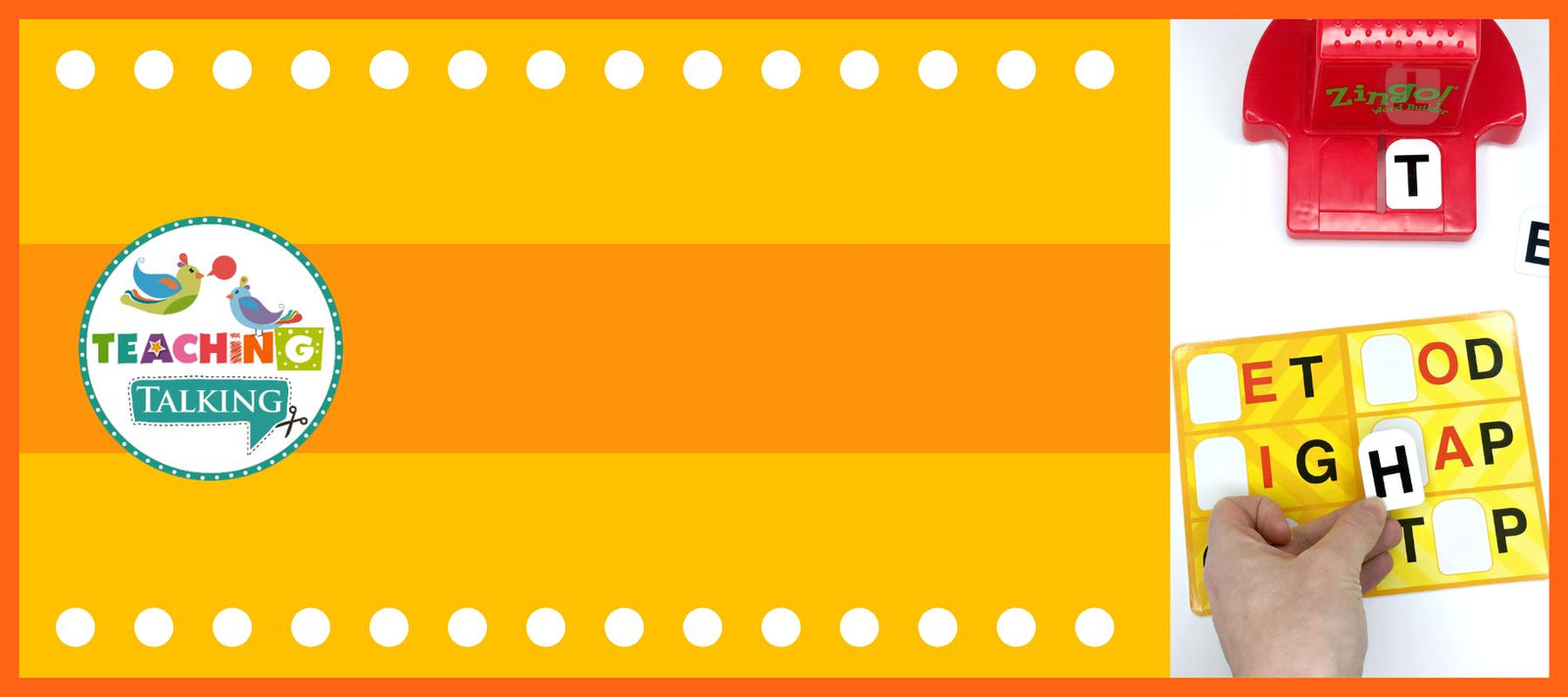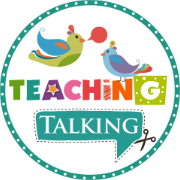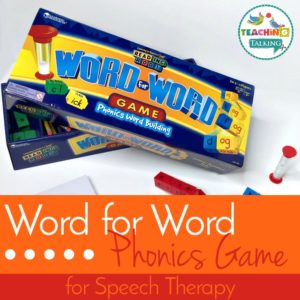
Zingo Word Building Game for Speech and Language Therapy
April 14, 2015 3 min read
How Can I Use the Zingo Word Building Game for Speech and Language Therapy?
The Zingo Word Building Game is great for developing early reading and vocabulary skills in younger children.

Number of Players: Up to 6
Ages: 5+ I use Zingo Word Building Game with younger children and those who are just starting to get the idea of phonics.
Target: Teaches early word recognition and word-building skills. Useful for identifying rhyming words and patterns.
How the Game is Played: Did you ever play some of the more advanced spelling games like Scrabble or Boggle with your younger students and they only came up with 3 letter words? If so, then this game is at a level they can succeed at.
There are 2 levels of play and like all word games, this is going to need to be played with an adult alongside for encouragement.

At the beginner's level, the word card provides 2 out of 3 letters, and players must use the “letter getter” provided to find the one missing letter to make a 3-letter word.
To make it harder, just flip over the cards and you will find only 1 letter is provided. Kids then need to find the 2 letters needed to complete the word.

If I had a complaint about this game it would be that the letters are written in uppercase. It depends on how your school district teaches but these days most would begin with lowercase letter recognition.
In order to play, you need your child to be familiar with letters in both upper and lower case and to get the idea in how to blend them together to make words.
Using the Zingo Word Building Game in Speech and Language Therapy
Like so many of my games in my kit bag, I’m unlikely to play this game straight out of the box unless I know the kids I am working with are going to get it right away.
I would be more inclined to use the cards and tiles (and of course the ever popular “letter getter”) to make up my own version of the game. I carefully select letters and sounds that I know my kids will be able to blend. Usually, these are ones that have been covered in class in recent weeks and we use them to recap.
Generally, children will be able to identify the beginning sound of a word first so I select cards that have the last 2 letters provided and we search for the first sound.

If they need help I will prompt “Ok so we have ap, which of these could be the beginning sound for this word?” I will then start to 'ponder' out loud to myself – giving thinking time for the child “h – ap? No, that doesn’t make a word, let me see…”
If they are ready for this game, they will be able to jump in and find the correct combination within a few seconds.
Once they can confidently make words with my help like this, I move them onto the beginning level of the game and then eventually onto playing against another child.
This game is basic but hits the spot for early readers and spellers or those needing some extra help.
Now you know all there is to know about using Zingo Word Building Game for Speech and Language Therapy – are you ready to play? Have fun!
Subscribe
Sign up to get the latest on sales, new releases and more …




